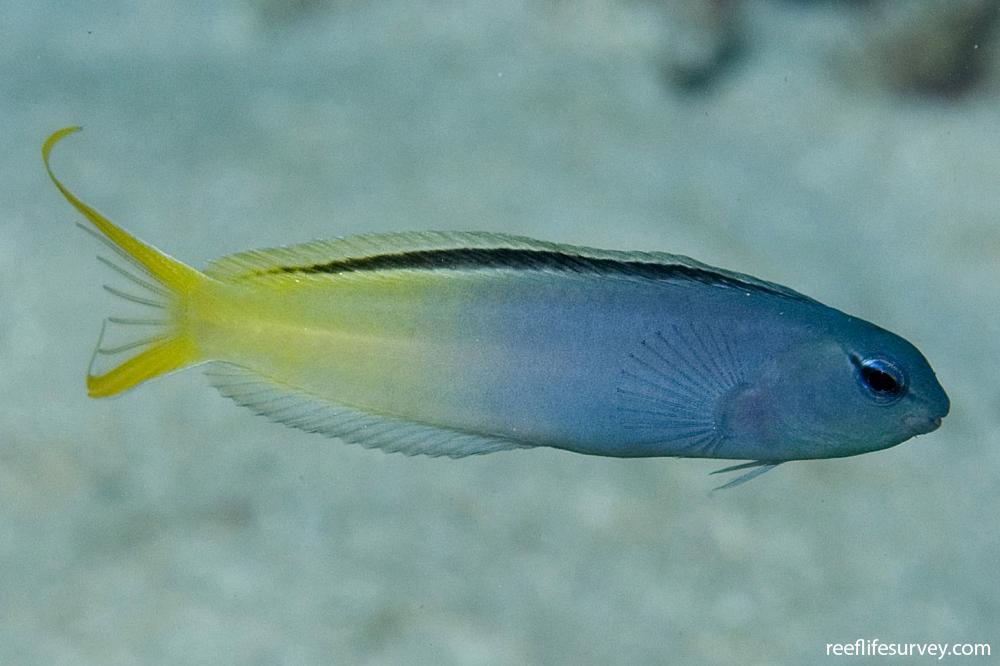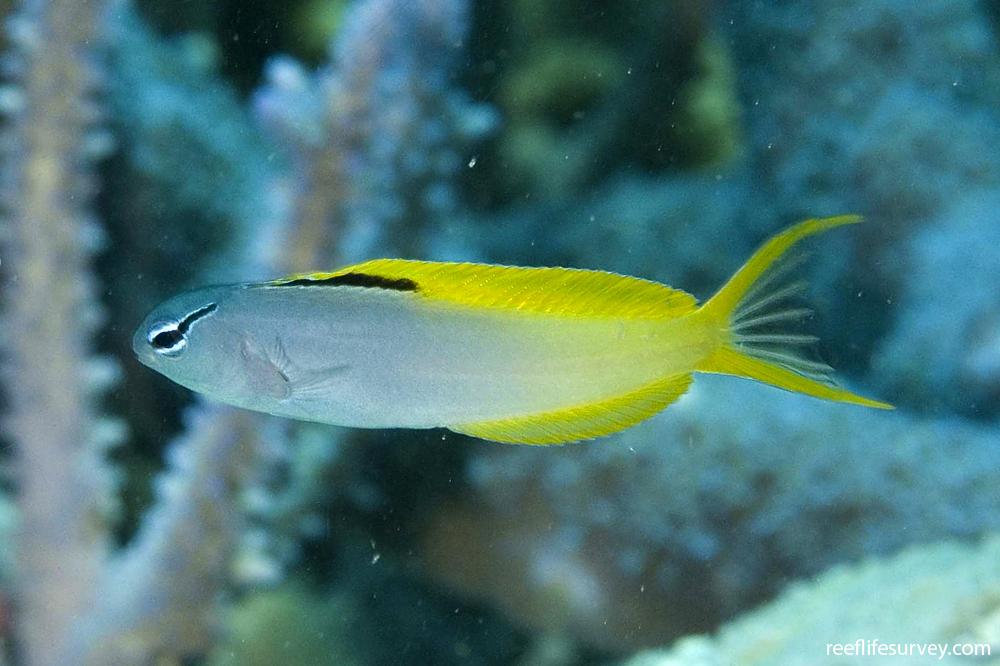Meiacanthus atrodorsalis
Eyelash Fangblenny | Eyelash Harp-tail | Eyelash Harptail Blenny | Forktail Blenny | Lyretail Blenny | Yellowtail Fangblenny | Yellowtail Poison-fang BlennySimilar Species
Same Genus
Distribution
Tropical Indo-Pacific
Description
Grey-blue front half of body grading to a yellow tail with long filamentous upper and lower lobes, black stripe along base of dorsal fin and distinctive ‘eyelash’ marking (short oblique bar through eye). Mimicked by Plagiotremus laudandus (Bicolor Fangblenny) which lacks the eyelash and has black stripe near top of dorsal fin, rather than base. Similar M. phaeus (Twilight Fangblenny) lacks yellow rear and ‘eyelash’.
Information
Max Size: 11 cm
Sea Temperature Range: 21.4-31.2°C
Depth: 1-30 m
Habitat Generalization Index: 15.89
Also referred to as the SGI (Species Generalisation Index), this describes the habitat niche breadth of the species. Species with values less than 15 are found in a relatively narrow range of reef habitat types (specialists), while those over 25 may be found on most hard substrates within their range (generalists). Learn more here.
Conservation and Rarity
IUCN Status: Not Evaluated
Occurrence: Common (23.5% of sites)
Occurrence describes how often the species is found on surveys within its distribution. It is calculated as the % of reef sites surveyed by RLS divers across all the ecoregions in which the species has been observed
Abundance: Few (4 per transect)
Abundance is calculated as the average number of individuals recorded per RLS transect, where present.
Edit by: Joe Shields






















![Meiacanthus sp. [yellow tail]](https://images.reeflifesurvey.com/0/species_3c_575d429654e55.w400.h266.JPG)